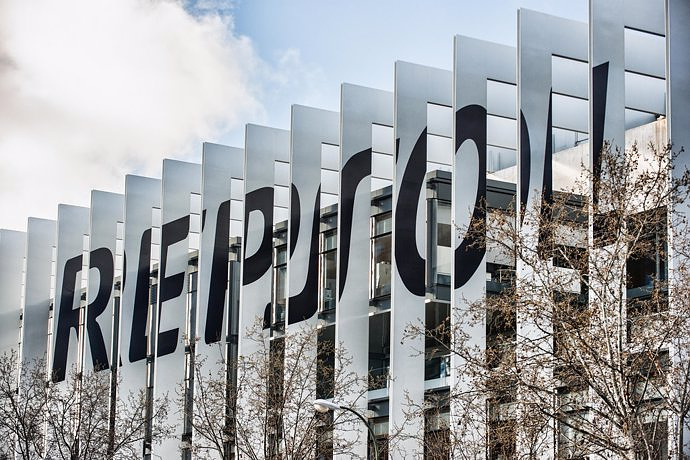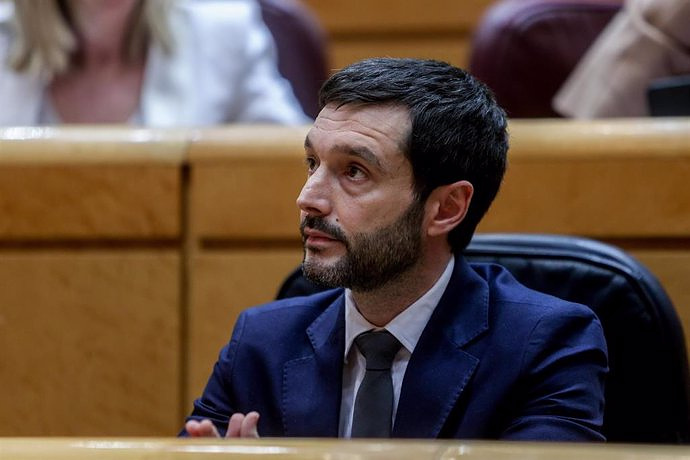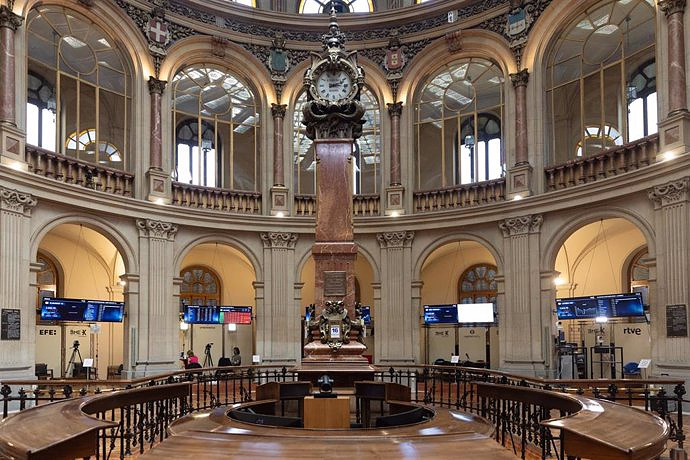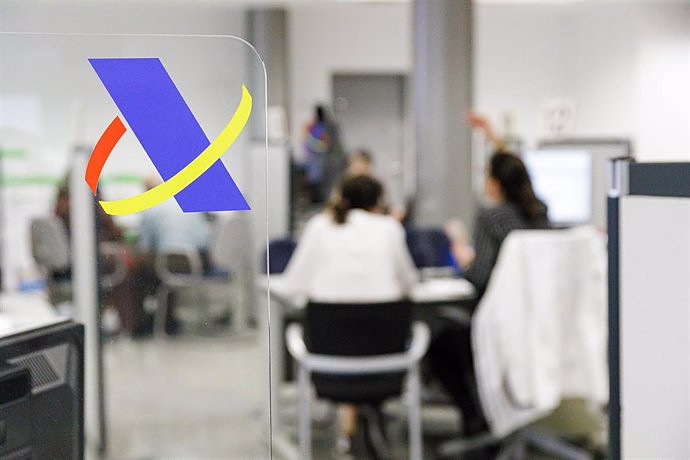MSF speaks of "huge open-air prison" and criticizes the position of the coalition and countries that do not repatriate their citizens
MADRID, 20 Nov. (EUROPA PRESS) -
The recent murders of children in the Al Hol camp for displaced persons, located in the northeast of Syria and which is home to tens of thousands of people, reflect the dramatic situation faced by internees in the facilities, which are home to relatives of alleged members of the Islamic State jihadist group.
During the day on Monday, the bodies of two girls of Egyptian nationality who had been reported missing shortly before inside the camp were found, as confirmed by the Syrian Observatory for Human Rights. The body, based in London and informants in the Arab country, indicated that both had been killed with bladed weapons and detailed that the bodies had been located in the 'Al Mohayerat' section of Al Hol, which shelters foreign women.
After that, Save the Children detailed that the victims were twelve and 15 years old, while highlighting the dangers that women and children living in Al Hol face "every day". "This news is absolutely heartbreaking. These two girls were trapped in the camp through no fault of their own. Their death is a reminder that no child should grow up in these camps," said the NGO's response director in Syria, Beat Rohr. .
The murders were the first documented in the last three months in the camp -created by the United Nations High Commissioner for Refugees (UNHCR) in 1991 during the Gulf War and expanded after the invasion of Iraq in 2003-, where Some 30 violent deaths have been recorded so far this year.
Doctors Without Borders reviews in its report 'Between two fires: danger and despair in the Syrian camp of Al Hol', that 79 children died in 2021 in the facilities, while noting that 64 percent of residents are under 16 years, with half under twelve. In addition, it indicates that among the causes of infant mortality is violence, but also run overs and falls into deep ditches of dirty water.
"We have seen and heard many tragic stories. Children dying from long delays in accessing urgent medical care," says MSF Operations Manager in Syria Martine Flokstra. "For children and their caregivers in Al Hol, receiving medical attention, when it does get it, is often a terrifying ordeal. Children who need treatment at the main hospital, an hour's drive from the camp, are escorted by armed guards and , in most cases, without their caregivers, since they are rarely authorized to go with their children," she denounces.
Flokstra stresses that "Al Hol is actually a huge open-air prison" and adds that "the majority are children, many of whom were born there, who have had their childhood stolen and sentenced to a life exposed to violence and exploitation, uneducated, with limited medical support and no hope in sight.
Various NGOs demand that countries speed up the repatriation of citizens in this camp and others in northeastern Syria, an area controlled by the Kurdish authorities. It is believed that there are citizens of about 60 countries in Al Hol and other detention camps, including Spaniards.
Thus, Save the Children highlights that since 2019 nearly 14,000 children have been repatriated from Al Hol and Roj, although 11,000 foreign children and women remain "trapped" in these camps, where the risks are added to the cholera outbreak recently declared in Syria.
MSF says the US-led coalition against Islamic State and countries whose nationals are in the camp "have failed their citizens". "They need to take responsibility and identify alternative solutions," Flokstra argues. "Instead, they have delayed or simply refused to repatriate their citizens, in some cases even stripping them of their citizenship, rendering them stateless," she denounces.
In this sense, it regrets that "there are still no long-term alternatives to end this arbitrary and indefinite detention" and warns that "the longer people are kept in Al Hol, the worse it will be, leaving a new generation vulnerable to exploitation and with no prospect of a violence-free childhood.
The NGO indicates in its report that "under the auspices of the global fight group against the Islamic State, exceptional policies have been applied that involve the indefinite and arbitrary detention of women, children and men in the Al Hol camp."
Islamic State took control of Al Hol in early 2014 as part of its lightning offensive, although the Syrian Democratic Forces (SDF) expelled the jihadists in November 2015, after which the camp reopened in April 2016 to host Iraqi refugees. Although the facilities housed some 10,000 people in 2018, the number shot up between December of that year and March 2019 to 73,000 after the SDF took over the city of Baghuz, the last bastion of the Islamic State in Syria.
The Autonomous Administration for North and East Syria (AANES) has warned of the danger of the absence of international aid in the management of the camps, while the United States warned in September that Al Hol is "a breeding ground for the next generation of Islamic State".
General Michael Kurilla, of the United States Central Command (CENTCOM), acknowledged that the jihadists "seek to exploit the horrible conditions" at the facilities and stressed that the residents "are vulnerable to radicalization." "Islamic State sees the camp as a captive audience for its message and recruitment efforts," he explained.
MSF acknowledges that the AANES and the SDS "have been poorly equipped and misguided when it comes to managing the procedures in a way that complies with international standards and laws", before lamenting that this has resulted in "repeated violations of Human Rights and recurring patterns of violence and exploitation" in Al Hol.
For this reason, it emphasizes that the residents say they are "caught between two fires": that of "extreme violence" by jihadists present in the camp and the "increasingly harsh security measures" of the Kurdish authorities to try to control the situation. Thus, he affirms that the "ideological demographics" of the residents "are much more diverse than the narratives about their affiliation with the Islamic State suggest."
"In a word, what we live here is horrible. We are in Al Hol because we were promised freedom and good living conditions if we left Baghuz and the war ended. I decided to leave Baghuz. Now I regret it. I thought it would be true, that I would be free, but nothing. If I had known, I would have preferred to die than come here," says a resident.
A displaced person says that "everyone has a different story" and that "not everyone is from Islamic State." "My husband was from Islamic State and he took my children, so I was forced to follow him because my daughter was with him. What else could I do? I didn't want to be separated from her and I wanted to protect her," she says. "My family asked me not to leave and now they don't speak to me. I don't have anyone outside of Al Hol," she laments.
MSF therefore calls on the coalition to support the authorities to adopt "immediate measures" to "guarantee the well-being, protection and fundamental rights of the population", including measures to "reduce violence, insecurity and criminal activities". and "strengthening capacities to deliver humanitarian aid" in Al Hol.

 Exploring Cardano: Inner Workings and Advantages of this Cryptocurrency
Exploring Cardano: Inner Workings and Advantages of this Cryptocurrency Seville.- Economy.- Innova.- STSA inaugurates its new painting and sealing hangar in San Pablo, for 18 million
Seville.- Economy.- Innova.- STSA inaugurates its new painting and sealing hangar in San Pablo, for 18 million Innova.- More than 300 volunteers join the Andalucía Compromiso Digital network in one month to facilitate access to ICT
Innova.- More than 300 volunteers join the Andalucía Compromiso Digital network in one month to facilitate access to ICT Innova.-AMP.- Ayesa acquires 51% of Sadiel, which will create new technological engineering products and expand markets
Innova.-AMP.- Ayesa acquires 51% of Sadiel, which will create new technological engineering products and expand markets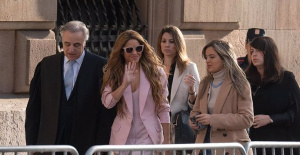 Prosecutor's Office requests the filing of a new case against Shakira for alleged tax crime
Prosecutor's Office requests the filing of a new case against Shakira for alleged tax crime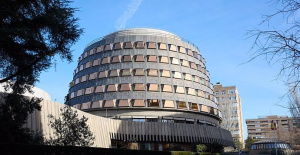 The Constitutional Court endorses the law that criminalizes harassment in abortion clinics
The Constitutional Court endorses the law that criminalizes harassment in abortion clinics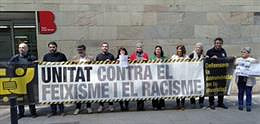 PSC and Junts join the commitment not to agree with Vox or Aliança Catalana
PSC and Junts join the commitment not to agree with Vox or Aliança Catalana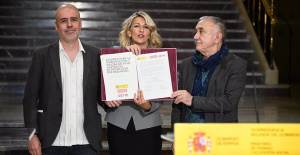 This is the subsidy reform: higher amounts and beneficiaries and compatibility of unemployment with a salary
This is the subsidy reform: higher amounts and beneficiaries and compatibility of unemployment with a salary How Blockchain in being used to shape the future
How Blockchain in being used to shape the future Not just BTC and ETH: Here Are Some More Interesting Coins Worth Focusing on
Not just BTC and ETH: Here Are Some More Interesting Coins Worth Focusing on They develop devices for the precise diagnosis of cancer patients
They develop devices for the precise diagnosis of cancer patients UMH researchers are working on a high-quality apricot crop that requires less irrigation water
UMH researchers are working on a high-quality apricot crop that requires less irrigation water The UPV develops an application to improve the quality of life of patients with glioblastoma
The UPV develops an application to improve the quality of life of patients with glioblastoma A sensor system obtains the fingerprint of essential oils and detects if they have been adulterated
A sensor system obtains the fingerprint of essential oils and detects if they have been adulterated A million people demonstrate in France against Macron's pension reform
A million people demonstrate in France against Macron's pension reform Russia launches several missiles against "critical infrastructure" in the city of Zaporizhia
Russia launches several missiles against "critical infrastructure" in the city of Zaporizhia A "procession" remembers the dead of the Calabria shipwreck as bodies continue to wash up on the shore
A "procession" remembers the dead of the Calabria shipwreck as bodies continue to wash up on the shore Prison sentences handed down for three prominent Hong Kong pro-democracy activists
Prison sentences handed down for three prominent Hong Kong pro-democracy activists ETH continues to leave trading platforms, Ethereum balance on exchanges lowest in 3 years
ETH continues to leave trading platforms, Ethereum balance on exchanges lowest in 3 years Investors invest $450 million in Consensys, Ethereum incubator now valued at $7 billion
Investors invest $450 million in Consensys, Ethereum incubator now valued at $7 billion Alchemy Integrates Ethereum L2 Product Starknet to Enhance Web3 Scalability at a Price 100x Lower Than L1 Fees
Alchemy Integrates Ethereum L2 Product Starknet to Enhance Web3 Scalability at a Price 100x Lower Than L1 Fees Mining Report: Bitcoin's Electricity Consumption Declines by 25% in Q1 2022
Mining Report: Bitcoin's Electricity Consumption Declines by 25% in Q1 2022 Oil-to-Bitcoin Mining Firm Crusoe Energy Systems Raised $505 Million
Oil-to-Bitcoin Mining Firm Crusoe Energy Systems Raised $505 Million Microbt reveals the latest Bitcoin mining rigs -- Machines produce up to 126 TH/s with custom 5nm chip design
Microbt reveals the latest Bitcoin mining rigs -- Machines produce up to 126 TH/s with custom 5nm chip design Bitcoin's Mining Difficulty Hits a Lifetime High, With More Than 90% of BTC Supply Issued
Bitcoin's Mining Difficulty Hits a Lifetime High, With More Than 90% of BTC Supply Issued The Biggest Movers are Near, EOS, and RUNE during Friday's Selloff
The Biggest Movers are Near, EOS, and RUNE during Friday's Selloff Global Markets Spooked by a Hawkish Fed and Covid, Stocks and Crypto Gain After Musk Buys Twitter
Global Markets Spooked by a Hawkish Fed and Covid, Stocks and Crypto Gain After Musk Buys Twitter Bitso to offset carbon emissions from the Trading Platform's ERC20, ETH, and BTC Transactions
Bitso to offset carbon emissions from the Trading Platform's ERC20, ETH, and BTC Transactions Draftkings Announces 2022 College Hoops NFT Selection for March Madness
Draftkings Announces 2022 College Hoops NFT Selection for March Madness
